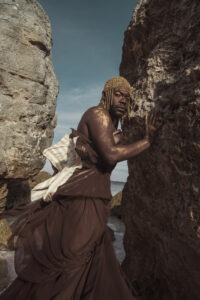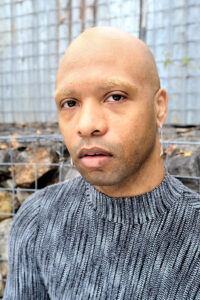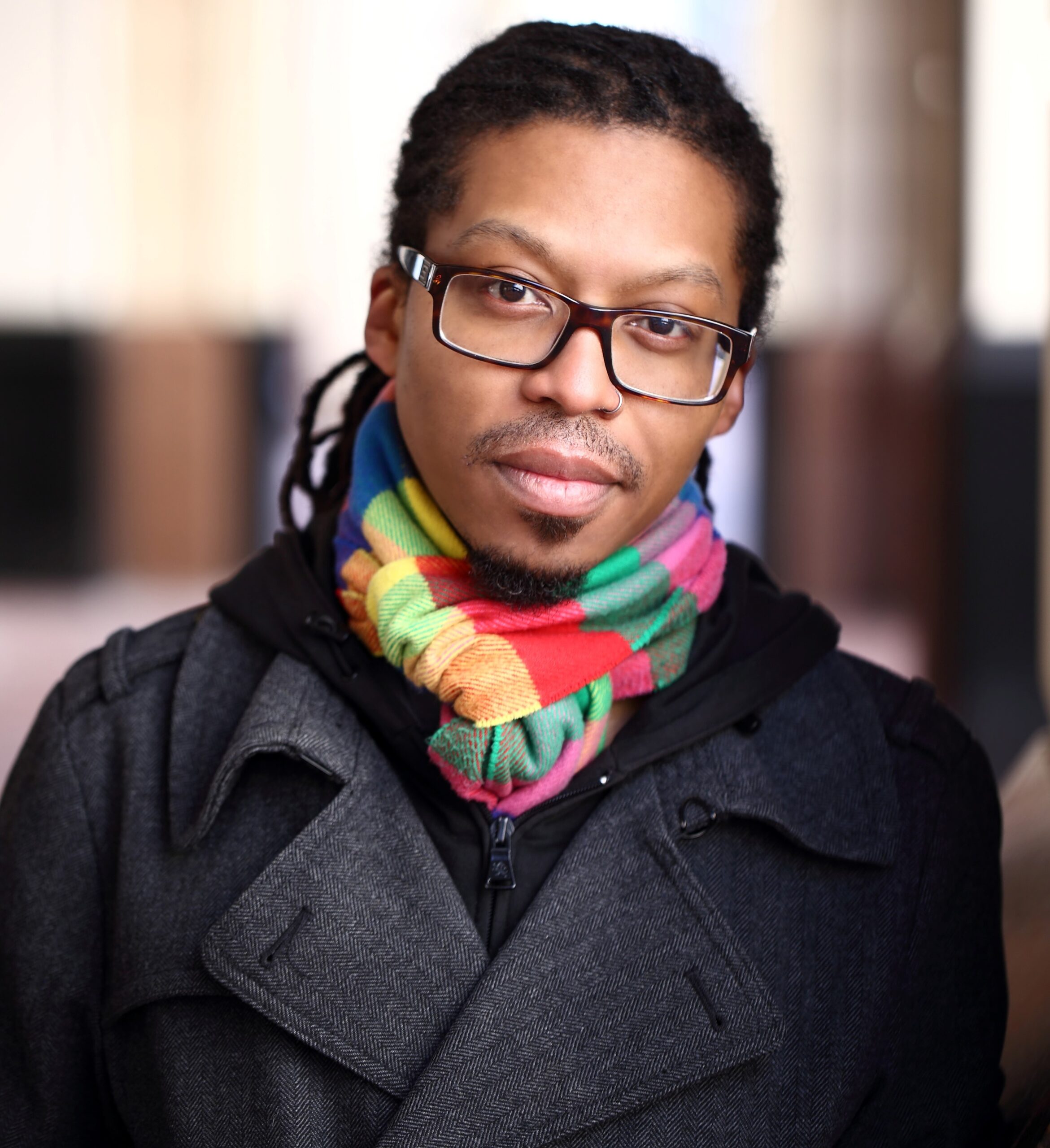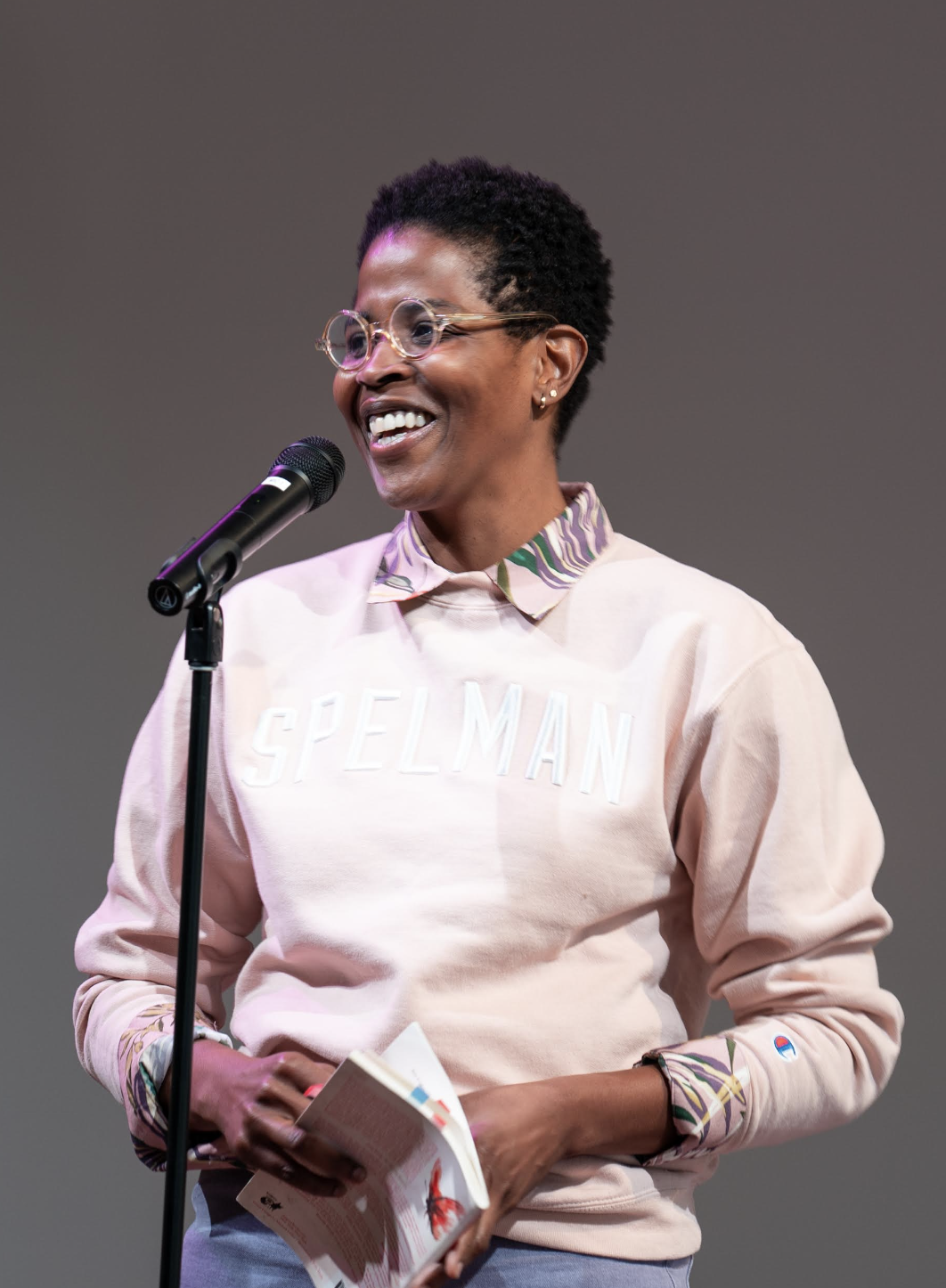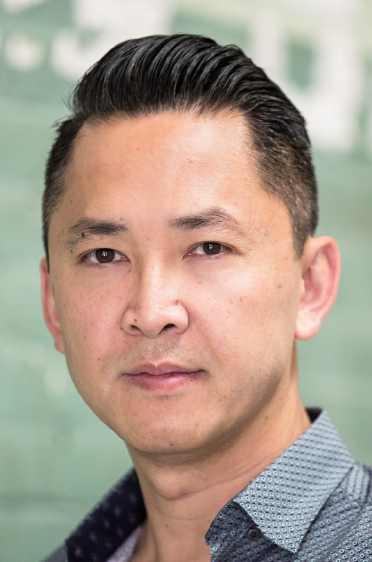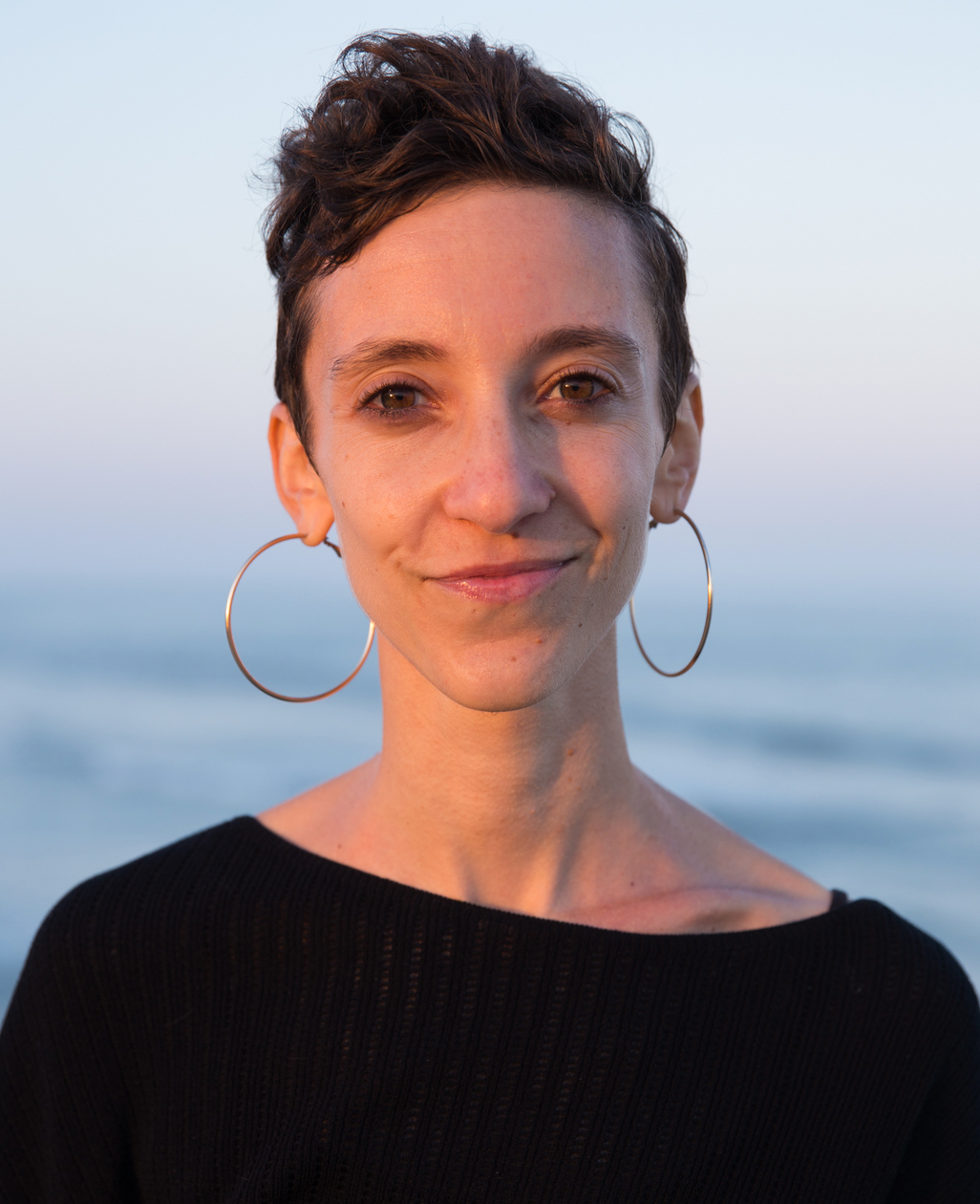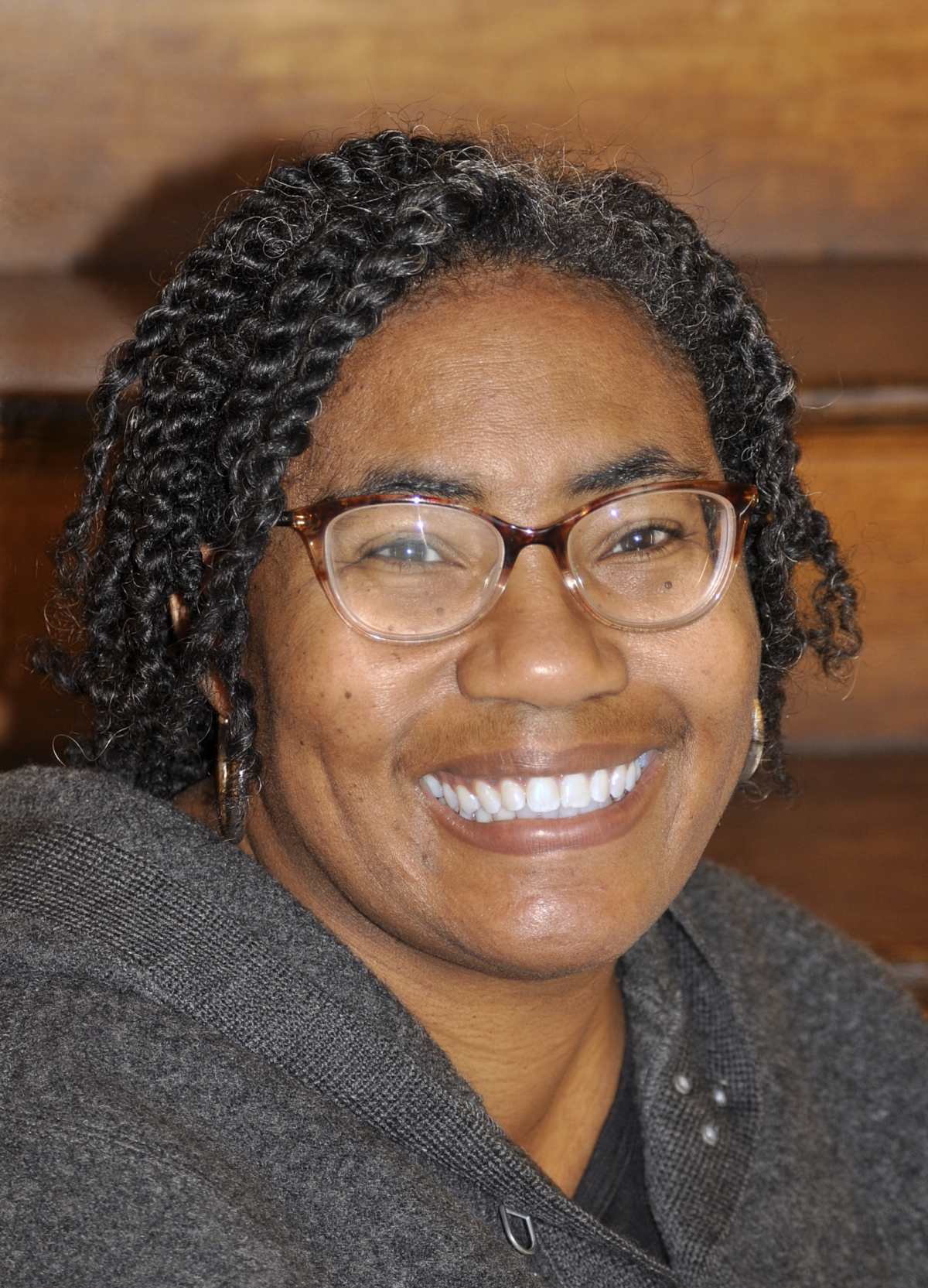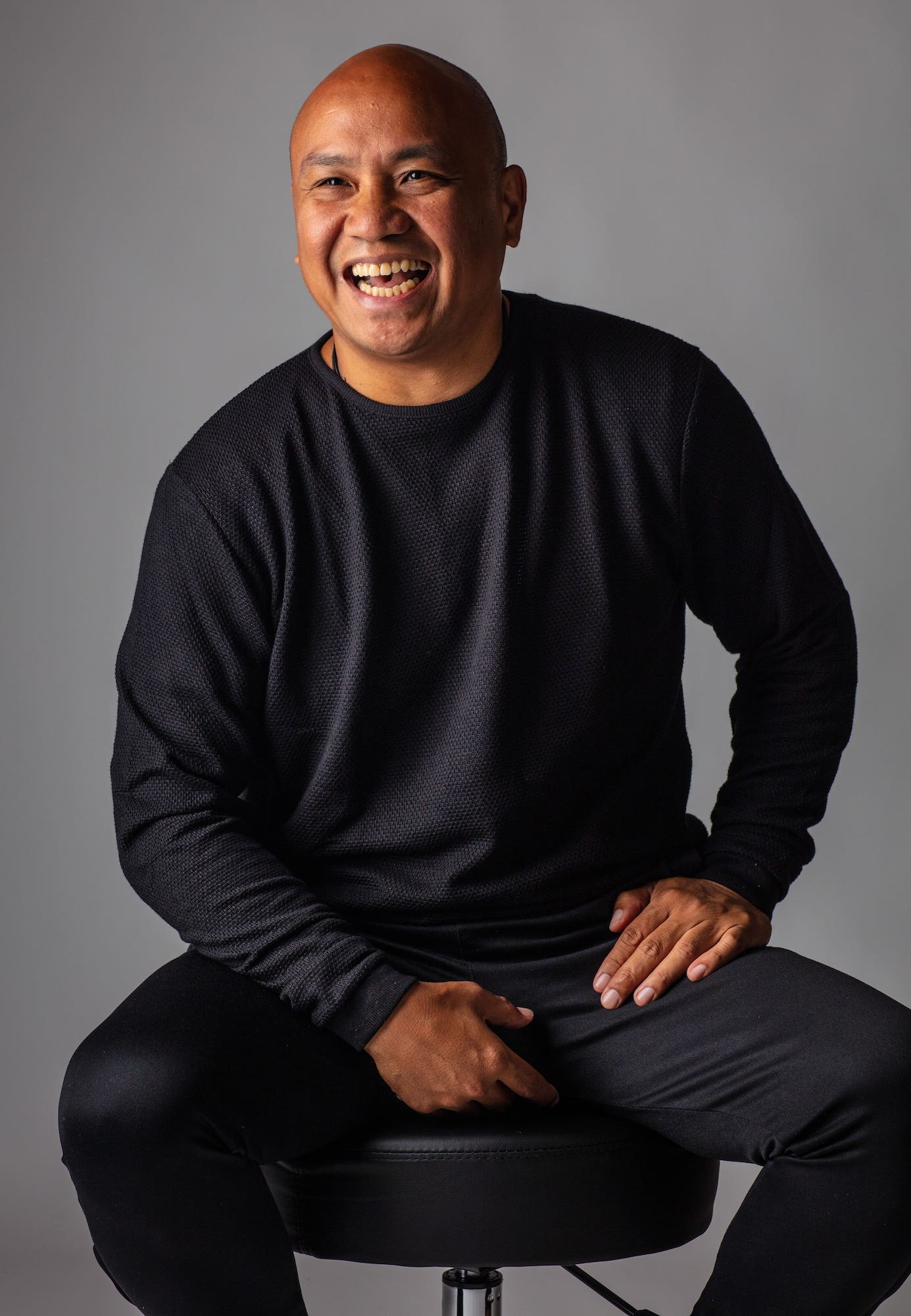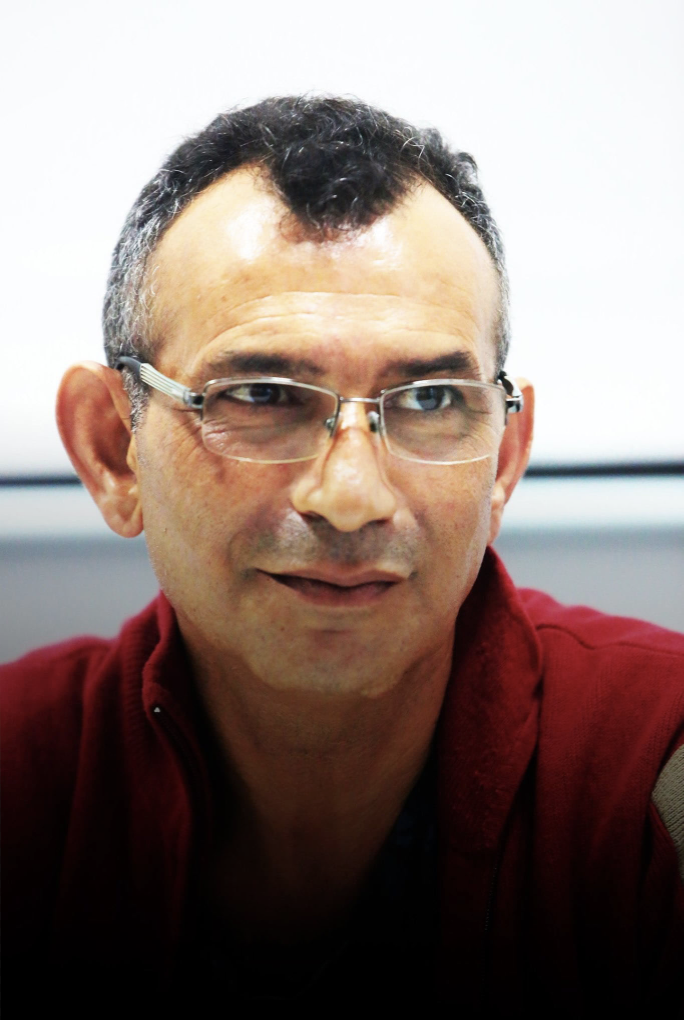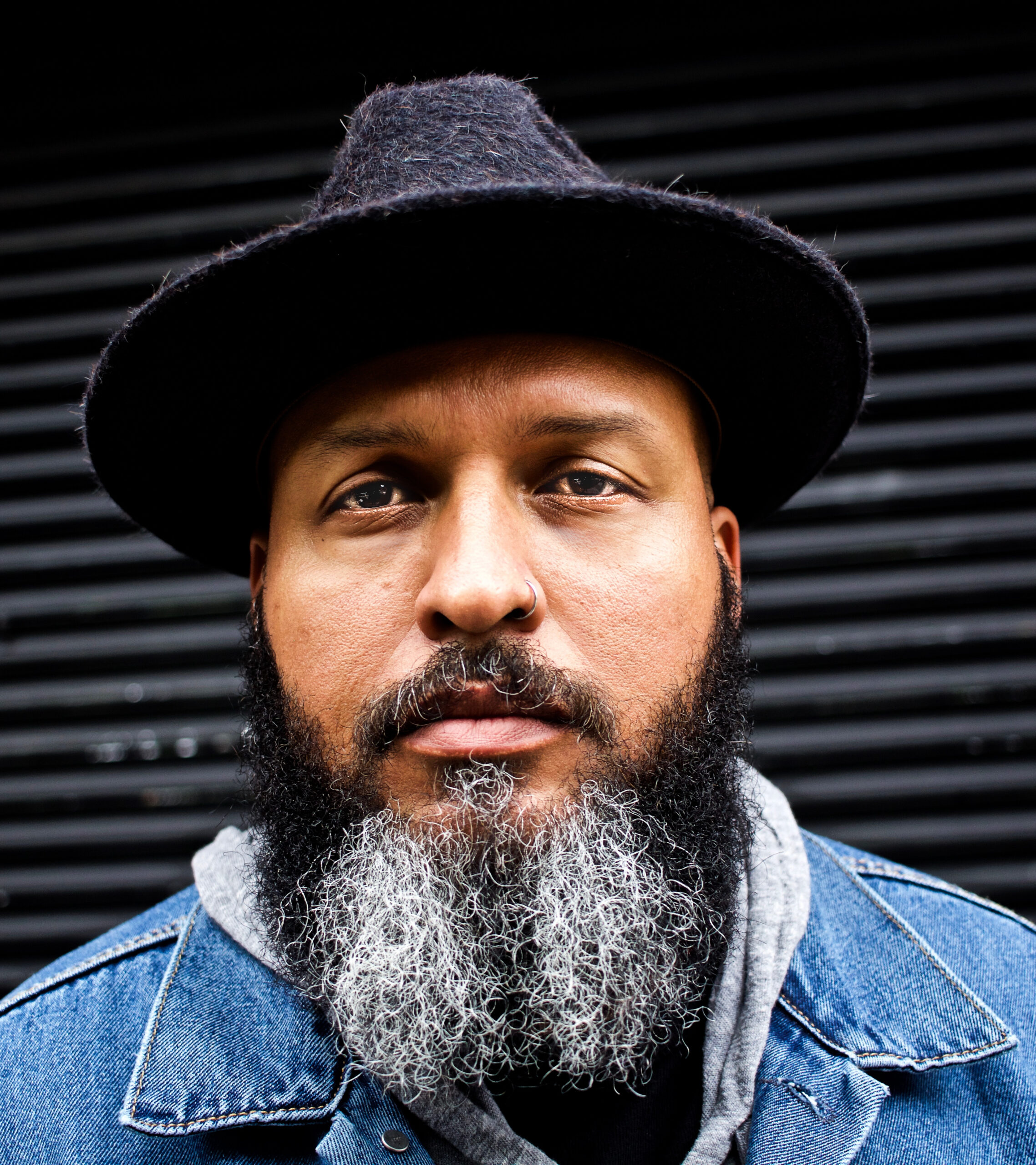NICHOLAS GOODLY’s debut full-length poetry collection, Black Swim was published by Copper Canyon Press in September 2022. JAAMIL OLAWALE KOSOKO and Nicholas recently connected over Zoom and talked about interdisciplinary art and writing, the essential nature of rest, and prioritizing creative expression.
All posts tagged: Interviews
Finding One’s Way Through Bewilderment: Virginia Konchan interviews Nathan McClain

In this interview, VIRGINIA KONCHAN talks with NATHAN McCLAIN about his second full-length collection, Previously Owned. Touching on process and craft, literary influence, racial justice, and faith, this rich conversation celebrates the range of McClain’s poetry and the sense of history and place in his work.
Permission to Dream Forth: An Interview with Arisa White
JULY WESTHALE interviews ARISA WHITE

In Arisa White’s lyrical memoir, Who’s Your Daddy, she writes of her father’s absence throughout her coming-of-age in tender, genre-bending poems. July Westhale and Arisa White, former teaching colleagues and Bay Area community, approached this interview in an epistolary way, discussing form, family, voice, and taking up space on the page.
Belonging Is a Complicated Thing: An Interview with Viet Thanh Nguyen
JENNIFER ACKER speaks with VIET THANH NGUYEN

Viet Thanh Nguyen visited Amherst College in February 2022 in the joint roles of Presidential Scholar and LitFest headliner. In his live conversation with The Common’s editor-in-chief Jennifer Acker, he deployed humor and refreshing honesty to discuss his path to publishing his Pulitzer Prize-winning novel The Sympathizer and its best-selling sequel The Committed. The conversation touched on the complexities of Vietnamese diasporic identity as well as his desire to expand the world of literature to encompass critical thought, breaking through the traditional literary bubble to allow for politics, history, and more. This interview is a collaboration between The Common and Amherst College’s LitFest and is an edited and condensed version of the live conversation.
Poetry as Homeland: An Interview with Mónica Gomery
MÓNICA GOMERY interviewed by SHELBY HANDLER

Mónica Gomery’s forthcoming collection, Might Kindred, was the winner of the 2021 Raz/Shumaker Prairie Schooner Book Prize in Poetry. The book inhabits a variegated landscape, exploring the nature of home as a first-generation American. In the conversation that follows, Gomery and Handler discuss ancestry, identity, intimacy, and the liminal spaces between.
New to Liberty: A Conversation with DeMisty D. Bellinger
DeMISTY D. BELLINGER interviewed by AMY REARDON

One of the best things about interviewing the poet, professor, and novelist DeMisty D. Bellinger, Ph.D., is how she drops a book recommendation into every answer. Another is the transparent manner in which she speaks of her work: her writing is so intentional that the scenes and characters seem to crawl inside the reader and live there. Once seen, the characters in Bellinger’s debut novel cannot be unseen. Released on April 19, 2022, by Unnamed Press, New to Liberty tells the stories of Sissily, Nella, and Greta, three lives sewn together by Dust Bowl-era Kansas, tragedy, and their own longings. Amy Reardon and DeMisty Bellinger spoke via phone and discussed whose experience gets centered in literature, how to give voice to the unvoiced, and Bellinger’s desire to write from questions to figure out how the world works.
The Healing Nature of Truth: An Interview with Brionne Janae
MICHAEL MERCURIO interviews BRIONNE JANAE

In conversation, they go by Breezy. When Michael Mercurio and Brionne Janae spoke via Zoom, Breezy was at home in Brooklyn, and Michael was in Northampton, Massachusetts. Though Michael had known Breezy’s work for several years through their publications in Ploughshares, Waxwing, Frontier Poetry Review, The Sun, The Rumpus, and The Academy of American Poets Poem-A-Day, they hadn’t met until they worked together on a program for the Tell It Slant Poetry Festival, cohosted by the Faraday Publishing Company and Black Writers Read. Here, they talk about musicality, authenticity, and the importance of bringing voice to what might be left unsaid. (Please note this interview discusses childhood sexual abuse and trauma.)
We Insist on a Godliness, a Mystery, a Laughter: An Interview with Patrick Rosal
PATRICK ROSAL interviewed by WILLIE PERDOMO

Patrick Rosal is an interdisciplinary artist and author of five full-length collections of poetry. Former Interviews Editor Willie Perdomo connected with Patrick over email this winter, and in this lively exchange, they discuss the spirit realm and its ability to breathe life into writing. Rosal shares his perspective on music and performance in his work, as well as the importance of honoring rituals, ancestors, and legacy.
Language Is a Living Substance: An Interview with Abdelmajid Haouasse
Abdelmajid Haouasse’s transportive short story “A Hot Day” is a highlight of Issue 21‘s portfolio of fiction from Morocco. An award-winning scenographer, director, cinematographer, and author of short fiction, Haouasse is interviewed by The Common interns Sofia Belimova, Olive Amdur, Adaku Nwokiwu, and Eliza Brewer, with the assistance of Nashwa Gowanlock, who translated the interview as well as the original story. Here, Haouasse discusses his story’s unique narration, the translation process, and drawing inspiration from the Moroccan city of Asilah. This is the second of two interviews conducted by the summer interns with Issue 21 contributors; the first is with Latifa Baqa.
How to Write on a Ledge: An Interview with John Murillo
NATHAN MCCLAIN interviews JOHN MURILLO

In this interview, Nathan McClain’s mode of inquiry evokes substantial and insightful responses from John Murillo. The ultimate craftsman, Murillo understands the value of writing from a space, from a feeling, instead of toward a subject. In other words, he does not make an event of writing a poem. His practice is uncorrupted by a chase for validation. Instead, we understand the time and dedication necessary to achieve Murillo’s exquisite lyricism and masterful use of form.
John Murillo’s most recent book, Kontemporary Amerikan Poetry, won the Kingsley Tufts Poetry Award and was a finalist for the PEN/Voelcker Award for Poetry and the NAACP Image Award. He is an assistant professor of English and director of the creative writing program at Wesleyan University.

